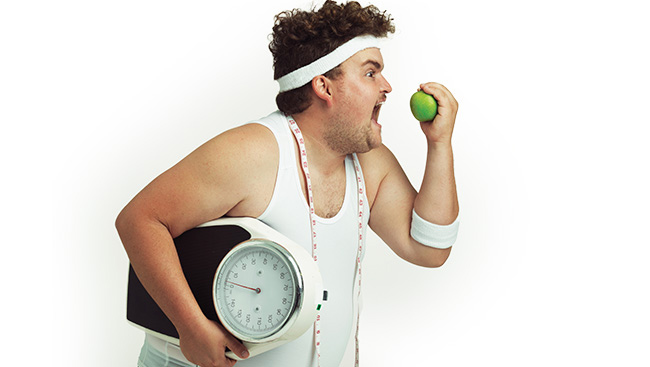Let’s take a moment to clean out some of the fitness myths you might have heard.
Spring is here, which means it’s time for two things – getting in shape for the summer, and spring cleaning. Let’s take a moment to fuse the two together, and to clean out some of the fitness myths you might have heard. There’s a lot of so-called fitness “advice” out there that is misleading or just plain garbage. It’s time to toss it out.
Here are a few fitness myths that you need to throw out with the rest of the junk.
#1. More exercise and dieting means more results.
You’d think it was logical – the more you exercise and the more you diet the better your results will be. But that’s simply not the case. In reality, your muscles need rest to rebuild. If you work them out all the time, then you run the risk of what’s called “overtraining,” which can plateau your results, or even cause muscle loss and injury. Similarly, if you restrict your calories too much then you can put your body into survival mode causing it to intentionally retain fat.
Don’t try to speed up your results by overdoing things. If you’ve been working out and dieting hard, but you’ve stopped getting results, it might be time to add in a rest day and start eating more (healthy, nutritious foods).
#2. You can exercise your way to fitness.
There are a lot of people who like to dream that they can eat whatever they want as long as they get regular exercise. While the exercise certainly won’t hurt, it’s not going to deliver results unless you combine it with the right eating habits.
In order to burn fat, you need to be in a caloric deficit, meaning you are burning more calories than you’re consuming. Exercise can only burn some 10-30 per cent of the calories you eat in a day, which means achieving actual weight loss is more dependent on what you put in your body.
If, on the other hand, you want to build muscle, all the weight lifting in the world won’t make you stronger unless you’re in a caloric surplus. This means that you’re eating more calories than your body needs for basic function, allowing the extra calories to go toward repairing and building muscle fibers.
Bottom line – you really are what you eat, and you need the right nutritional habits to support your fitness goals.

#3. You can “spot reduce” belly fat.
This is a common myth – that you can target stubborn fat deposits with exercise, most specifically the ab region.
Wrong. When you exercise a specific part of the body, it doesn’t burn the fat that happens to be closest to that muscle. It burns fat throughout your body at a uniform rate. That means you can do all the crunches you want, and it won’t result in the reduced belly fat you’re looking for.
In fact, by placing too much emphasis on your abs you can actually get the opposite of a flat stomach. If you fail to burn off fat effectively while developing the ab muscles beneath, then you’re suddenly carrying around a belly of both fat and muscle.
This isn’t necessarily a bad thing if your goal is pure strength. If you’re going for that flat tummy, however, you’re going to have to go a different route. Instead of trying to spot reduce fat, use cardio or HIIT to burn fat throughout your body.
#4. Carbs are bad.
We’ve all heard it, but it’s not true. Some carbs are bad, but some carbs are essential. I’m talking about the difference between simple and complex carbs.
No matter what type of carb you eat, it releases glucose into your blood stream. You need glucose to fuel activity and recovery in your body, especially if you’re working out hard. But with simple carbs (refined sugar, fruit, candy) you get loads of glucose dumped into your system all at once, causing a blood sugar spike which at best builds fat and at worst causes diabetes.
On the other hand, when you eat complex carbs (whole grains, sweet potato, green vegetables), your body breaks them down more gradually, causing a slow, steady supply of glucose. Essentially, this acts as a gas tank to fuel your exercise, recovery, and all-around body function. So don’t slash carbs from your diet. Just cut out the bad, and fuel yourself with the good.





